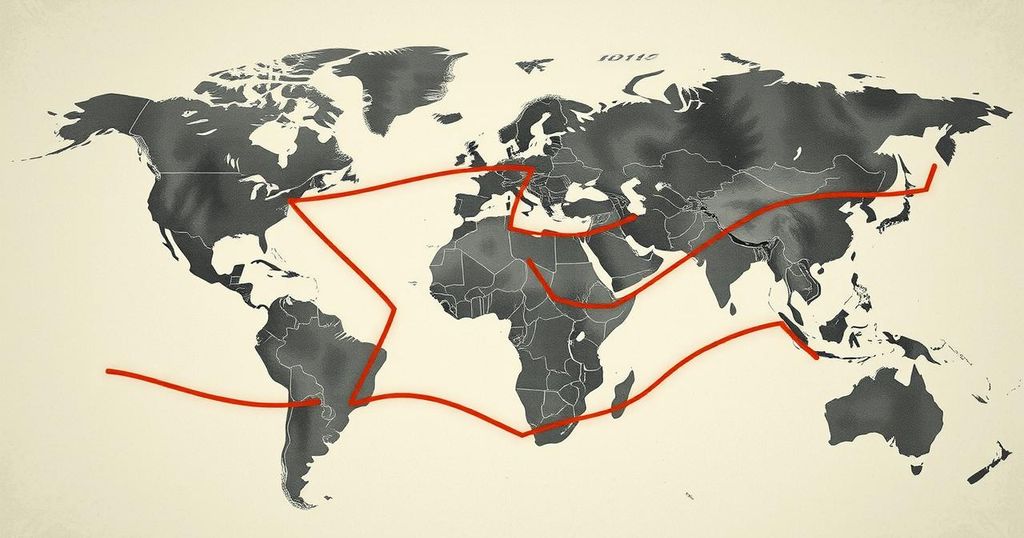Civil rights groups express alarm over President Trump’s recent executive order, fearing a renewed travel ban affecting Iran, Iraq, Syria, Libya, Sudan, Somalia, and Yemen. Advocates have created a support hotline while awaiting clarification from the White House on the order’s specifics. Past experiences with similar bans have led to legal challenges and public protests, raising concerns about discrimination and constitutional rights.
On January 20, 2025, President Donald Trump issued an executive order that has prompted significant concern from civil rights organizations in the United States. There is a growing apprehension that this order may lead to the reintroduction of a travel ban affecting individuals from predominantly Muslim nations such as Iran, Iraq, Syria, Libya, Sudan, Somalia, and Yemen. These advocacy groups argue that such measures could lead to discrimination based on religion and ethnicity, reviving policies that disproportionately impact these communities.
In response to these potential changes, various civil rights organizations have established a 24-hour hotline designed to assist individuals who might be affected by the executive order. This initiative aims to offer immediate support to travelers who encounter difficulties related to the order, serving as a crucial resource amidst growing uncertainty regarding future travel restrictions.
Despite persistent inquiries from both the media and civil rights advocates, the White House has yet to provide clarity regarding the specifics of the order. This lack of transparency intensifies concerns about the order’s implications and fuels fears of exclusion based on religious and racial identity.
The American-Arab Anti-Discrimination Committee (ADC) is leading efforts to monitor the situation and explore legal avenues to counter the executive order. Abed Ayoub, ADC’s national executive director, has indicated that the organization is evaluating its options and may pursue legal challenges in the coming days, reflecting anxiety over potential legal ramifications.
This is not the first instance of travel bans and similar policies under President Trump’s administration. Previous orders targeting Muslim-majority countries faced widespread protests and legal scrutiny, with civil rights advocates detailing how they led to social stigmatization and infringements on constitutional rights.
Civil rights organizations are calling upon the administration to thoughtfully assess the wider consequences of such policies, underlining the necessity for fairness and the upholding of constitutional rights centered around equality and non-discrimination.
As developments unfold, civil rights groups, alongside legal experts and affected communities, will be observant of further actions related to the executive order. The conversation continues to revolve around reconciling national security measures with the fundamental rights of individuals.
The recent executive order issued by President Trump on January 20, 2025, has revitalized fears of a reinstated travel ban aimed notably at Muslim-majority nations. Historically, such travel bans have raised concerns over discrimination, particularly against Muslim and Arab communities, and have prompted strong reactions from civil rights organizations. Advocates worry that policies of this nature could revive prejudices and affect the civil liberties of individuals from targeted countries.
The new executive order by President Trump has reinstated fears of a travel ban on specific Muslim-majority countries, igniting widespread concern among civil rights advocates. Organizations have established resources to support those affected as they await further clarification from the White House. The situation continues to evoke debate regarding national security versus safeguarding individual rights, highlighting the need for careful consideration of the implications of such policies.
Original Source: www.travelandtourworld.com






